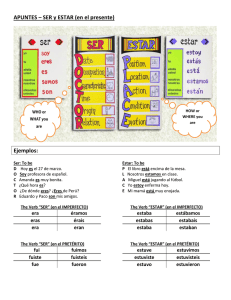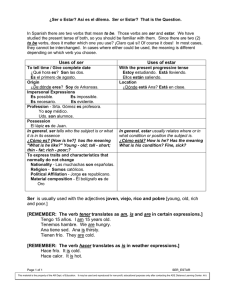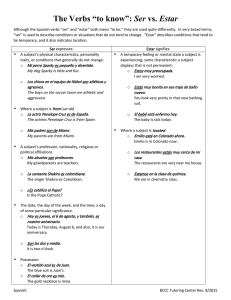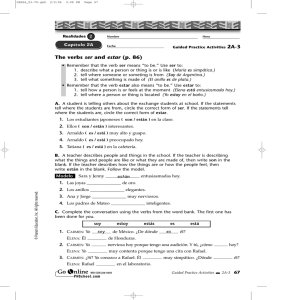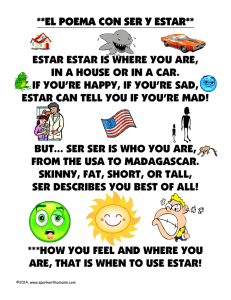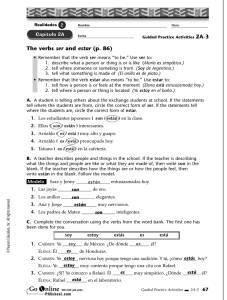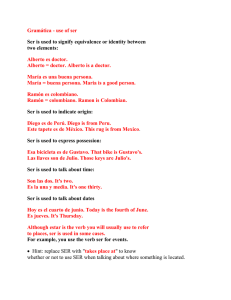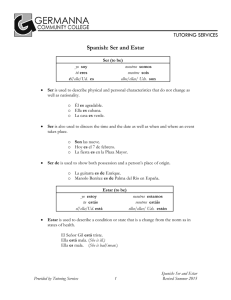SER and ESTAR - U3A Site Builder
Anuncio
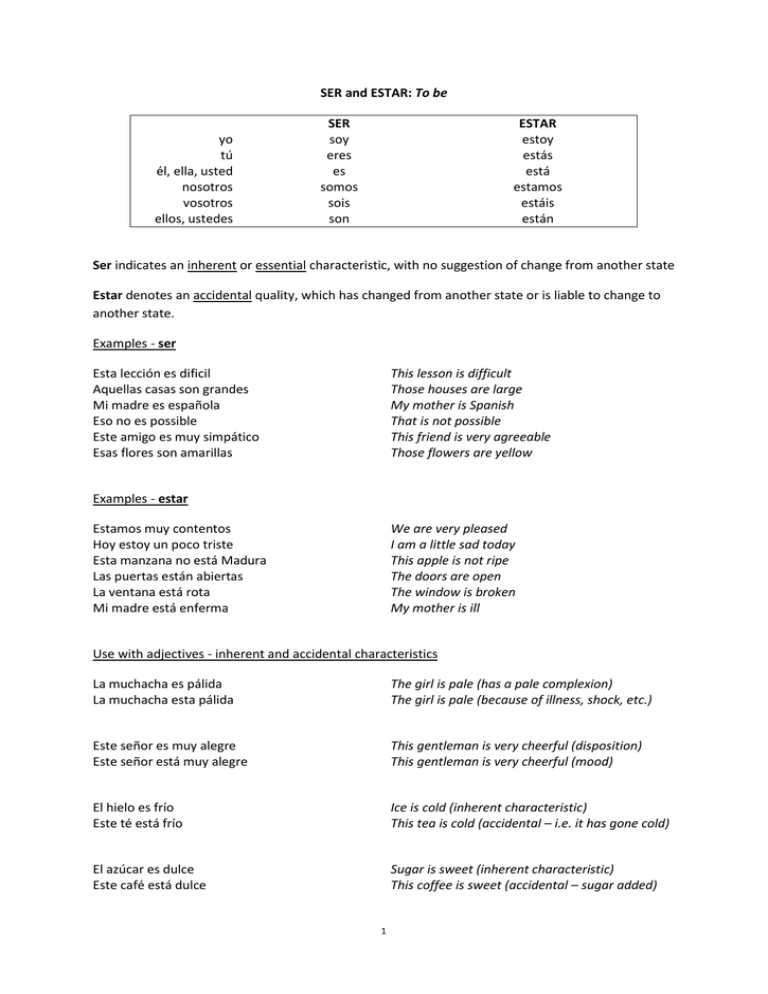
SER and ESTAR: To be yo tú él, ella, usted nosotros vosotros ellos, ustedes SER soy eres es somos sois son ESTAR estoy estás está estamos estáis están Ser indicates an inherent or essential characteristic, with no suggestion of change from another state Estar denotes an accidental quality, which has changed from another state or is liable to change to another state. Examples - ser Esta lección es dificil Aquellas casas son grandes Mi madre es española Eso no es possible Este amigo es muy simpático Esas flores son amarillas This lesson is difficult Those houses are large My mother is Spanish That is not possible This friend is very agreeable Those flowers are yellow Examples - estar Estamos muy contentos Hoy estoy un poco triste Esta manzana no está Madura Las puertas están abiertas La ventana está rota Mi madre está enferma We are very pleased I am a little sad today This apple is not ripe The doors are open The window is broken My mother is ill Use with adjectives - inherent and accidental characteristics La muchacha es pálida La muchacha esta pálida The girl is pale (has a pale complexion) The girl is pale (because of illness, shock, etc.) Este señor es muy alegre Este señor está muy alegre This gentleman is very cheerful (disposition) This gentleman is very cheerful (mood) El hielo es frío Este té está frío Ice is cold (inherent characteristic) This tea is cold (accidental – i.e. it has gone cold) El azúcar es dulce Este café está dulce Sugar is sweet (inherent characteristic) This coffee is sweet (accidental – sugar added) 1 Use with Adjectives - different meanings Ser cansado Estar cansado To be tiresome To be tired Ser listo Estar listo To be clever To be ready (i.e. prepared) Ser malo Estar malo To be bad (or bad at something) To be ill Examples Mi hermana está cansada ¡Qué cansado es este hombre! Estos alumnos son muy listos Estamos listos para salir Soy muy malo en español Estos muchachos son my malos Mi madre está mala My sister is tired How tiresome this man is! These students are very clever We are ready to go out I’m very bad at Spanish These boys are very bad My mother is ill General aid If you can substitute ‘in a () state” for the adjective without changing the meaning, then use estar; otherwise use ser. This rhyme may help: "To tell how you feel or where you are, always use the verb estar." Without adjectives For position or location, always use estar. Otherwise, use ser. ¿Dónde estás? Estoy aquí. Está detrás de la puerta Estamos en un lío Where are you? I’m here. He / she / it is behind the door We’re in a mess ¿Qué es eso? ¿Qué edificio es? Es uno grande. Es el mismo. What is that? Which building is it? It is a big one. It is the same one. To live in Madrid is not to know Spain. Two and three are five. Whose book is this? It is John’s. It is yours. Where’s he from? He’s from Madrid. He’s a good lad. Vivir en Madrid no es conocer España Dos y tres son cinco. ¿De quién es este libro? Es de Juan. Es de usted. ¿De donde es? Es de Madrid. Es un buen muchacho. 2
